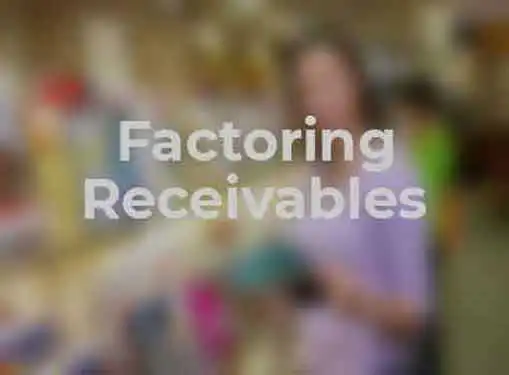Small Business Accounting
Factoring Receivables
Factoring receivables can get you out of a cash flow crunch in a hurry. For the peace of mind of knowing that you have money in the bank, the cost of factoring receivables is well worth the price.
The business is keeping its head above water, but cash is tight and another bank loan just isn't an option.

The cash flow pinch has your back against the wall and you're starting to wonder whether you have any options left.
Well, you might have one more option before you throw in the towel. It's called factoring receivables and it may be a good way to generate cash in a hurry for your business.
Sooner or later every small business finds itself in a cash flow crunch. It simply comes with the territory. For many small businesses, factoring receivables provides a way to turn non-liquid assets (i.e. accounts receivable) into instant cash.
Here's how it works: Under certain conditions, factors (factoring companies, finance companies, or other business entities) may be willing to purchase your business' accounts receivables, giving you cash for a certain percentage of your receivables upfront with the remainder (minus a fee) to follow as payment is received from your customers. In theory, it's a win/win transaction: Your business gets an instant injection of cash and the factor earns a fee for their services.
In practice, however, the decision to factor your receivables isn't a slam dunk. Here are some things to consider:
Eligibility
You might be surprised to learn that factors aren't eager to take on just any outstanding invoice. In order for their business to work, they need to look for receivables that will most likely be paid by the customer. To accomplish this, factors routinely run prospective accounts through a selection process that gauges your customers' credit worthiness as well as the financial position of your company. If you have a high percentage of deadbeat customers then it is highly unlikely that a factor will be anxious to do business with your business.
Cost to Factor Receivables
Factors aren't charities. They are companies who are in business for the same reason you are - to make money. The way they make money is by charging a fee for their service, which is usually deducted from their final payment to your company. Typical fees can run as high as 7% or more of the total amount collected by the factor, which is not insignificant when compared to the amount of interest you might pay from a commercial lender. For that reason alone you should view factoring only as a short-term solution rather than a regular outlet for collecting your receivables.
Intangibles
Although factoring may be a great way to generate cash quickly, you should be aware of the fact that it comes with some baggage. One of the most important things to consider is the perception it conveys to your customers and others in the industry since failing businesses regularly turn to factoring as a last resort to turn things around. Do healthy businesses sometimes factor receivables, too? Absolutely. Just make sure you've carefully considered how factoring might be perceived before you make your decision.
Share this article
Additional Resources for Entrepreneurs



Conversation Board
We greatly appreciate any advice you can provide on this topic. Please contribute your insights on this topic so others can benefit.